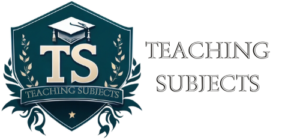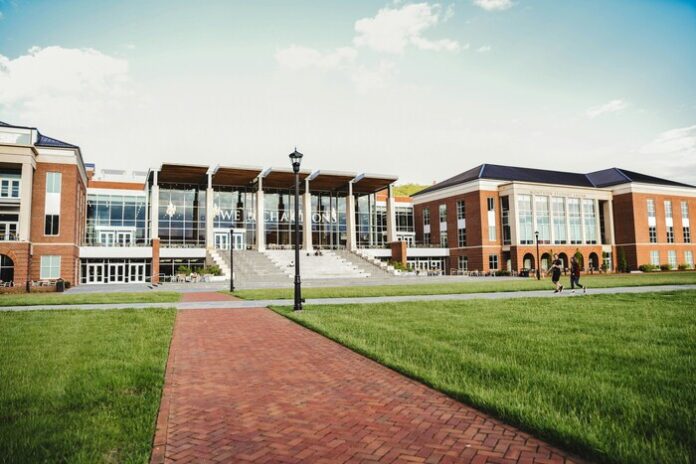Introduction
The traditional path of attending college has been increasingly questioned in recent years. Individuals have asked the question if college still worth the investment in 2024. With the rising tuition costs, the growing number of alternative education options, and the rapid evolution of the job market, many people are re-evaluating whether a college degree is still the best route to a successful career. This blog aims to explore both sides of this contentious issue, providing insights and considerations to help prospective students and their families make informed decisions.
Earning Potential and Financial Advantage

Statistics reveal a stark contrast in earning potential between college graduates and those with only a high school diploma. According to data from the US Bureau of Labor Statistics, individuals with a bachelor’s degree earn, on average, $1,248 per week, whereas high school graduates bring in approximately $746 per week. This wage gap highlights the substantial financial advantage a college degree can offer over a lifetime. Additionally, the National Center for Education Statistics reports that the median annual earnings of young adults with bachelor’s degrees are about 57% higher than those of high school graduates. These earnings differences make a compelling case for the financial benefits of knowing if college is worth the investment.
However, the issue of student loan debt cannot be overlooked in this discussion. A 2021 report by the Federal Reserve indicates that the average student loan debt per borrower is around $32,731. Despite this, many graduates find that a college degree’s long-term return on investment outweighs the initial financial burden. According to a Georgetown University study, the lifetime earnings premium for bachelor’s degree holders is approximately $2.8 million compared to those with only a high school diploma. This figure demonstrates that, despite the upfront costs and debt, the long-term financial benefits of obtaining a college degree can be substantial. For more detailed statistics, refer to the US Bureau of Labor Statistics and the National Center for Education Statistics.
Development of Critical Thinking and Problem-Solving Skills
A college education is more than just a pathway to better financial earnings; it is also instrumental in cultivating critical thinking and problem-solving skills. Critical thinking involves analyzing information objectively, evaluating different perspectives, and reasoning logically. college students frequently face challenges to examine complex issues, develop arguments, and engage in discussion that demand a deep understanding of various subjects. This analytical training is crucial for navigating today’s information-rich and often ambiguous world.
Examples of coursework and experiences that enhance problem-solving skills in college include assignments that involve research projects, case studies, and real-world applications. In engineering, business, and the sciences, students often work on group projects that mimic industry challenges, requiring them to brainstorm, collaborate, and innovate to find effective solutions. Internships and co-op programs further reinforce these skills by placing students in professional environments where they must navigate real-life obstacles and make strategic decisions.
The importance of these skills in the modern job market cannot be overstated. Employers today prioritize candidates who can think critically and solve problems creatively. These skills are essential for adapting to rapid technological advancements, shifting market trends, and complex global issues. A college education equips individuals with the intellectual tools needed to thrive in an ever-changing professional landscape by fostering critical thinking and problem-solving capabilities.
Skill Development
A college education allows students to acquire invaluable technical and soft skills in the modern workforce. Students often develop technical skills, such as proficiency in specific software, familiarity with industry-standard tools, or expertise in scientific research methods, through targeted coursework and laboratory work. For example, IT students might learn coding languages and cybersecurity protocols, while biology majors gain hands-on experience with laboratory equipment and experimental techniques. These skills are essential for students to meet the competencies required by their respective fields.
The knowledge and expertise gained from a college education are indispensable in certain specialized fields. Disciplines such as medicine, law, engineering, and the sciences require a deep, nuanced understanding of subject matter that only a rigorous academic program can provide. This specialized knowledge enables graduates to pursue professional certifications, engage in research, or contribute to innovative projects within their industries. Employers in these sectors often look for graduates who possess theoretical knowledge, practical skills, and a thorough understanding of industry standards.
Aside from technical prowess, college also hones transferable skills like communication, teamwork, and leadership. Students develop these competencies through group projects, presentations, and extracurricular activities such as clubs and sports. Written assignments and oral presentations emphasize effective communication, teaching students to articulate their ideas clearly and persuasively. Collaborative projects and participation in student organizations cultivate teamwork and leadership, requiring individuals to work together and often take initiative to drive collective success. These transferable skills are highly valued across all industries and are critical for building productive work environments and leading diverse teams.
Networking and Connections

Networking during college is crucial in building a solid foundation for professional success. Colleges provide an excellent environment for students to connect with peers, faculty, and industry professionals who can open doors to future career opportunities. Students can expand their networks by participating in campus organizations, attending career fairs, and engaging in internships. These interactions often lead to valuable connections, resulting in job recommendations, project collaborations, and insights into potential career paths. Furthermore, many colleges offer networking events and alumni meetups where current students can interact with former students who have ventured into various professional fields, creating a supportive web of contacts far beyond graduation.
Mentorship from professors and alums is another significant advantage of attending college. Professors often bring a wealth of industry experience and academic knowledge, making them valuable mentors who can guide students through their academic journey and career planning. Through close mentorship, students receive personalized advice, academic support, and professional guidance tailored to their goals. Additionally, alums who have successfully navigated the job market can provide practical insights, share experiences, and mentor current students. Established alum networks frequently have mentorship programs connecting students with seasoned professionals, facilitating career advancement, and opening new job opportunities. These mentorship relationships are invaluable as they equip students with the knowledge, skills, and confidence to thrive in their chosen careers.
Personal Growth and Development
College serves as a significant period of personal transformation and maturity for students. It is often the first time many individuals live independently, manage their schedules, and make decisions that will shape their future. This newfound autonomy fosters a sense of responsibility and self-discipline, essential traits for adulthood. Additionally, the academic challenges and diverse social interactions encountered in college compel students to reassess their values, beliefs, and goals, promoting introspection and personal growth. This transformative journey enables students to emerge from their collegiate experience more self-aware, confident, and equipped to navigate the complexities of adult life.
Exposure to diverse perspectives and cultures is another pivotal aspect of the college experience that significantly impacts personal development. Institutions of higher learning attract students and faculty from various backgrounds, creating a melting pot of ideas and traditions. This multicultural environment broadens students’ horizons, challenges preconceived notions and fosters empathy and understanding. Students gain a global perspective by engaging in discussions with peers from different cultures, participating in cultural events, and studying abroad. Moreover, extracurricular activities, such as clubs, sports, and volunteer work, allow students to develop essential life skills such as leadership, communication, and teamwork. These experiences contribute to a well-rounded personal development, preparing individuals to become responsible global citizens.
Alternative Paths
For those seeking alternatives to traditional four-year colleges, various paths can lead to successful and fulfilling careers. Trade schools, for instance, offer specialized vocational training in plumbing, electrical work, and automotive repair. These programs often take less time to complete than a traditional college degree and can lead to well-paying jobs upon graduation. Community colleges are another option, providing two-year associate degrees that can stand alone as qualifications or as stepping stones to a four-year college. Online courses and boot camps have also gained popularity, particularly in tech-related fields, by offering intensive, short-term programs that equip students with highly marketable skills. Apprenticeships, which combine on-the-job training with classroom instruction, are yet another viable path, allowing individuals to earn while they learn and gain valuable hands-on experience.
Each alternative path comes with its own set of pros and cons. Trade schools and apprenticeships can quickly lead to high-paying jobs, but they may limit career flexibility if one changes fields later. Community colleges are often more affordable than four-year institutions. They can provide a versatile foundation for various career paths but may lack the same level of on-campus resources and networking opportunities. Online courses and boot camps offer flexibility and focused training, yet the condensed format may not provide the depth of knowledge or broader educational experience that a traditional college offers.
Additionally, the value of real-world experience and entrepreneurship cannot be overstated. For example, many individuals have forged successful careers by starting their businesses or entering the workforce directly, gaining practical skills and insights that are indispensable in today’s dynamic job market. While these paths might present challenges, such as initial financial instability or the need for self-direction, they can also result in significant personal and professional rewards for those who navigate them successfully.
Conclusion
In summary, deciding to attend college or pursue alternative educational paths is multifaceted and deeply personal. College offers extensive benefits such as networking opportunities, mentorship from professors and alumni, and substantial personal growth and development. However, alternative paths like trade schools, community colleges, online courses, boot camps, and apprenticeships present viable options that can lead to rewarding careers without the time and financial commitment of a traditional four-year degree. It is crucial to weigh the pros and cons of each option carefully, considering individual career goals, financial situations, and personal preferences. Ultimately, the best path aligns with your aspirations and equips you with the skills and experiences necessary to thrive in your chosen career.















